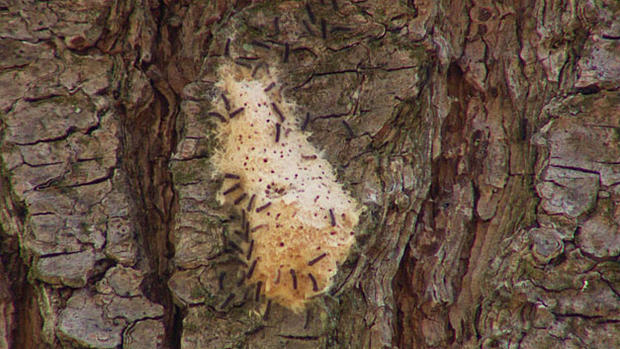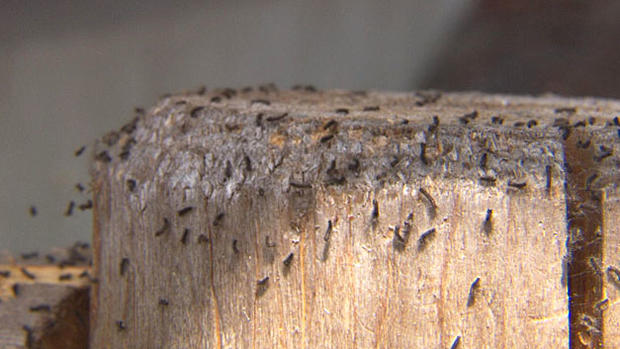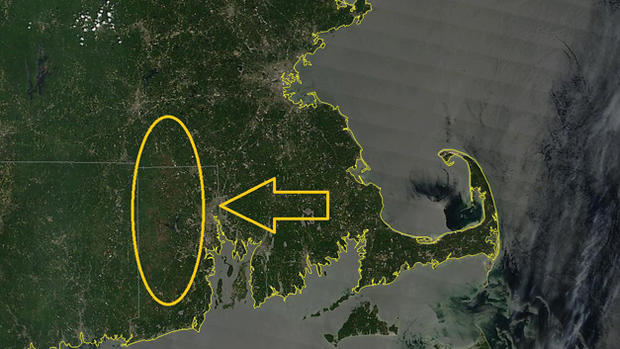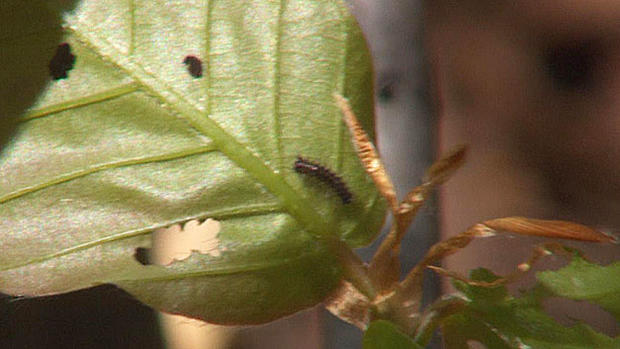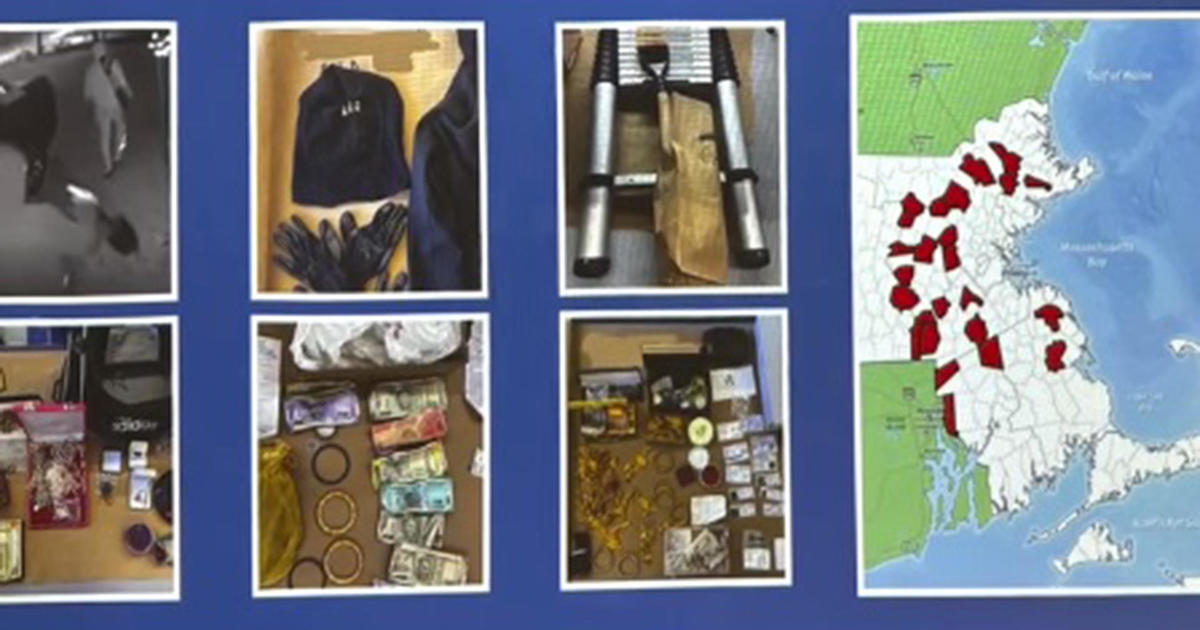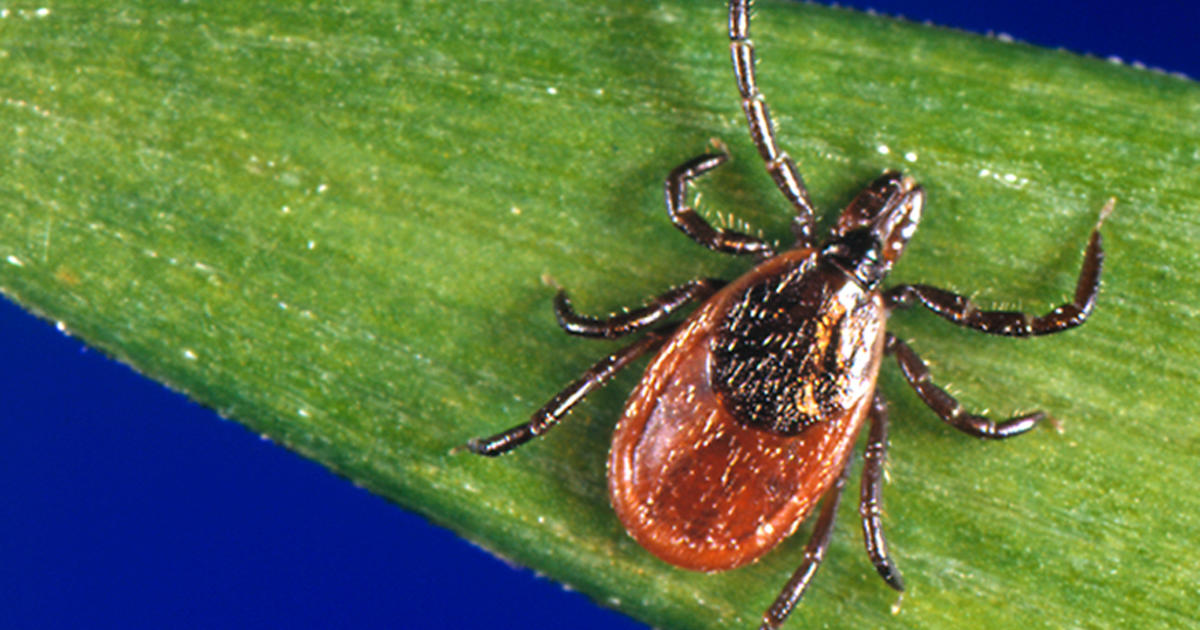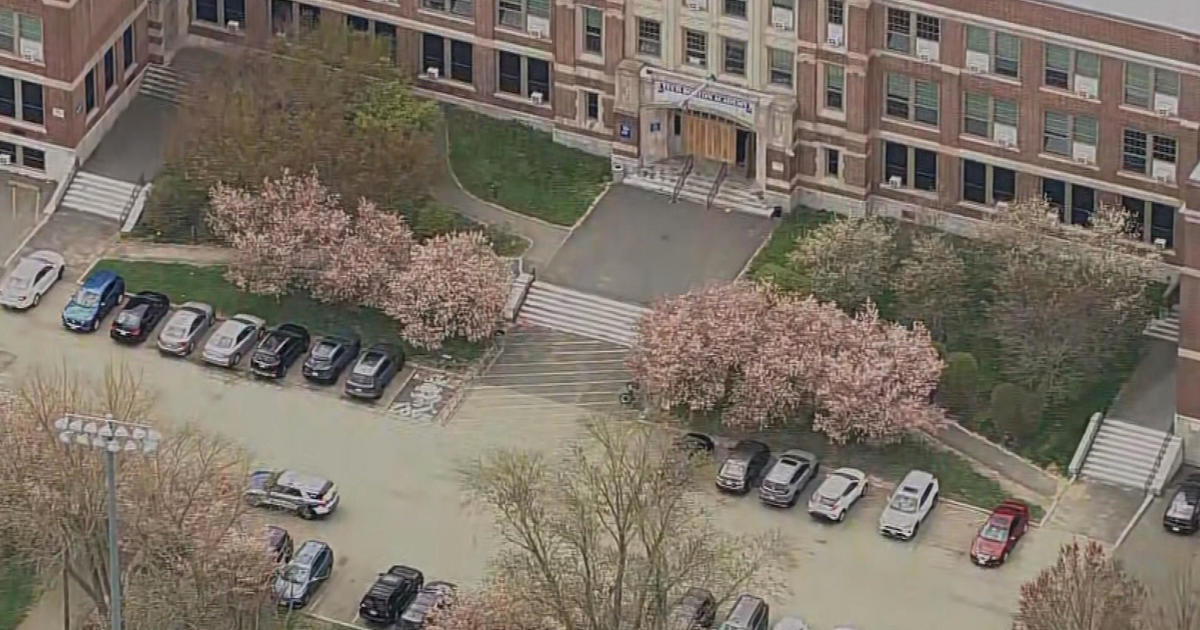Gypsy Moth Caterpillars Are Back And Shouldn't Be Ignored
BOSTON (CBS) - The pesky gypsy moth caterpillars are back and experts say it will be one of our worst years on record.
Now is the time homeowners should take action.
Read: Gypy Moth Facts & Management
"There was an arborist, a tree man here last fall and he said you gotta get this done," homeowner Chris Morss told WBZ-TV.
Prior to last year there hadn't been a major gypsy moth caterpillar outbreak since the 1980's. This year, the egg masses are numerous across Metrowest.
"If they do leaf out, and they are attacked, it will almost look as if they're half or two-thirds stripped bare," says Morss about his trees surrounding the property.
"Each egg mass on a tree can produce up to 600, 800 gypsy moth caterpillars. As you can see on this little 12-inch area there's probably 1,000 gypsy moth caterpillars," says Eric Taylor of Lynch Plant Healthcare.
These little guys have a big appetite. They start to eat away at everything. Especially oak leaves. If you ignore the problem, your beautiful summer foliage will look more like bare winter.
"Well gypsy moth caterpillars are really fast moving pests as you saw last year, the aerial shots of southern Massachusetts and Rhode Island and the foliage at the end of May compared to June the canopy for the region will look like it's winter time," says Taylor.
Even with all the rain we had in April, it was just too late for this year.
"There is a fungus called Entomophaga that kept it in check. But due to the historic drought in the last couple years, that fungus wasn't able to thrive and take over the gypsy moth caterpillar," says Taylor.
Now through the next few weeks, the pros are spraying an environmentally responsible coating on the leaves. It's not harmful to bees or pollinators. And it's cost effective.
"Oh yes, I would say so. I mean if you lose a great deal of trees on your property, I mean it adds to the property the charm of the trees," says Morss.
